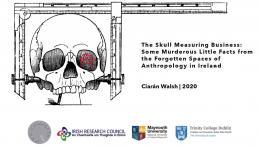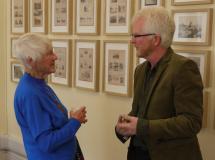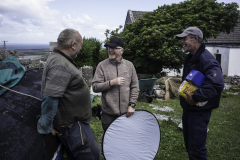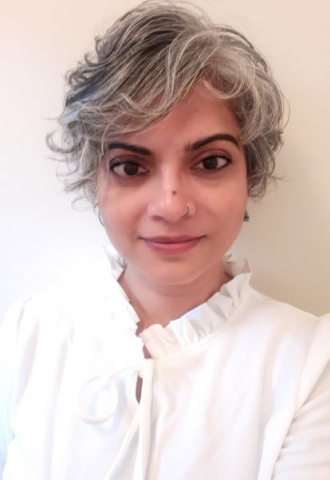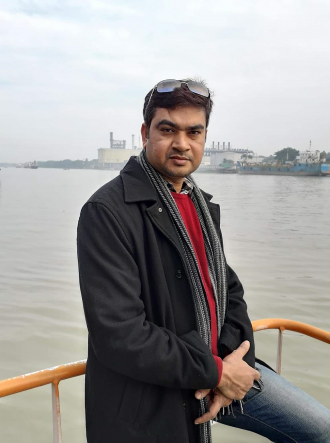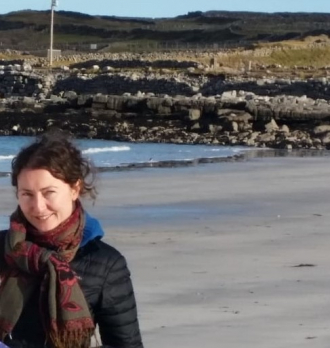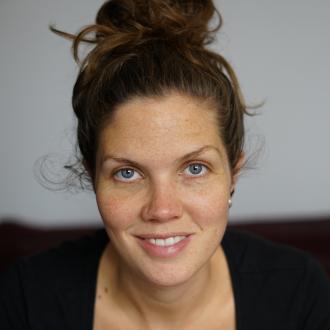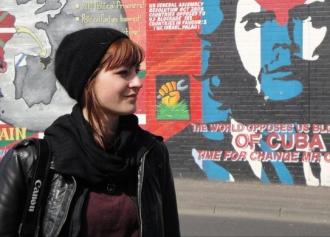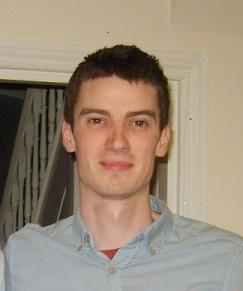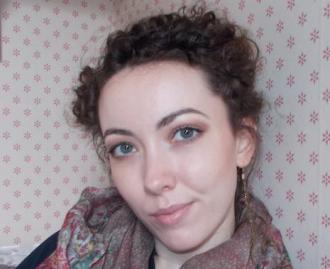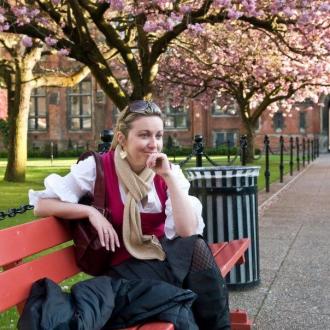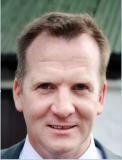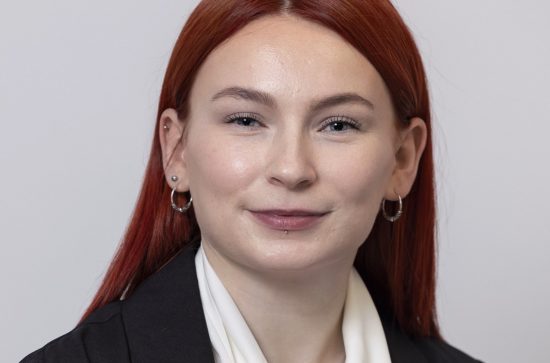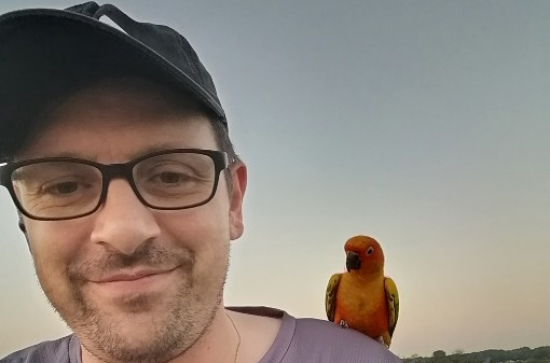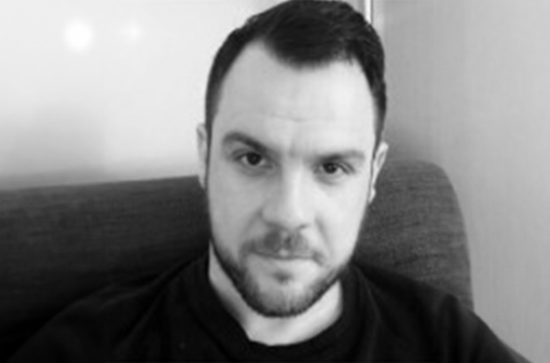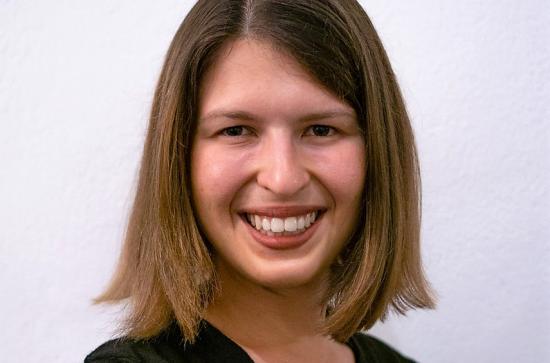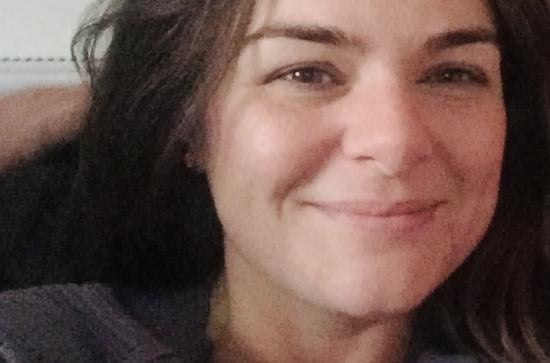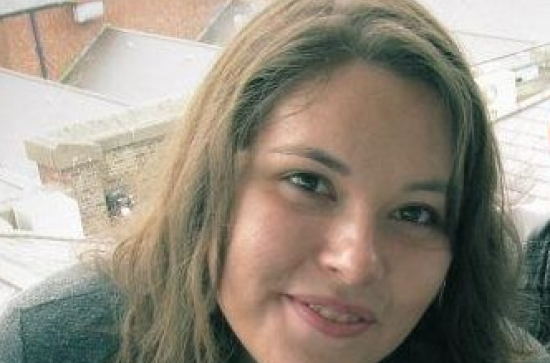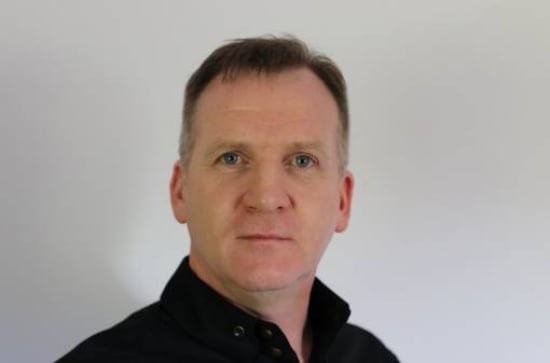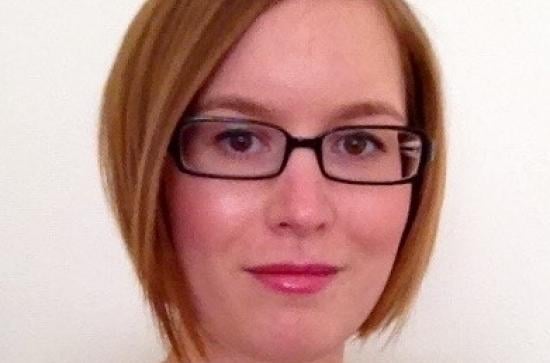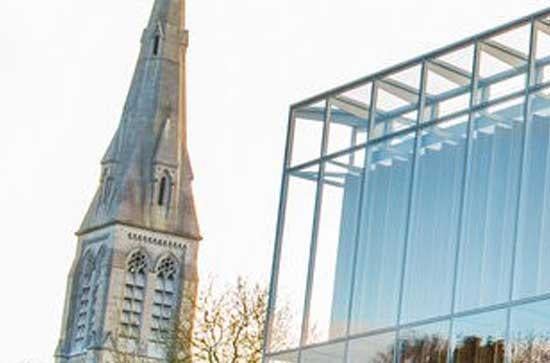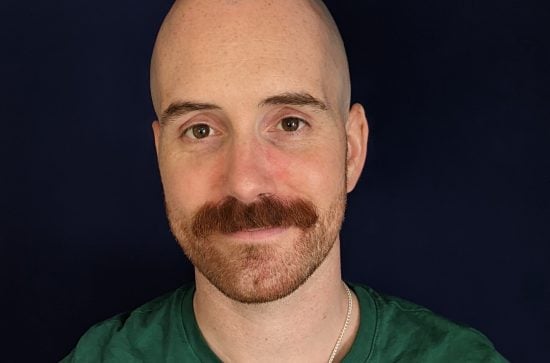The Skull Measuring Business: Some Murderous Little Facts from the Forgotten Spaces of Anthropology in Ireland
Ciarán Walsh's research represents a radical re-interpretation of Alfred Cort Haddon's contribution to the development of modern anthropology in Ireland and England. He has recast Haddon as an anti-imperialist who regarded the study of folk-lore as a way of humanising and socialising Victorian anthropology. This provides a novel vantage point from which to study the emergence of a radical folk-lore movement within anarchist and solidarist networks in geography and sociology in the 1890s, discarding conventional accounts of the relationship between folklore collection, ethnology, and anthropology in favour of an “Irish” reading of Haddon’s papers and associated records, especially his pioneering work as an ethnographic photographer and cinematographer. His research draws on significant new and unpublished material–discovered in Cambridge and Dublin in 2013 and 2014–to reveal the extent to which a historiographical preoccupation with biological/evolutionary narratives has distorted contemporary accounts of Haddon’s involvement in the development of folk-lore studies in Ireland. Furthermore, it configures Haddon’s modernist treatment of folk-lore as a formally innovative call for solidarity with the victims of colonisation and “civilisation,” which moves the study of folk communities and their customs beyond evolutionism and nationalism and into a radical engagement with issues of globalisation, habitat destruction, and genocide. This places Haddon's work at the centre of contemporary debates about the relationship between the academy and practice as anthropologists attempt to engage with the consequences of climate change.
Margaret Risbeth, granddaughter of Alfred Cort Haddon, and Ciarán Walsh discussing an exhibition of the photographic archive of the Irish Ethnographical Survey in the Haddon Library Cambridge.
Ciarán Walsh in the field with Peadar Mór, and Muiris Ó Conghaille. They were taking a break during filming on Inis Meáin, the Aran Islands, where Haddon pioneered a form of photo-ethnography in 1890 and deployed it during the Irish Ethnographic Survey of 1892.
PhD from the Dept. of Anthropology, Maynooth University
Supervised by Dr A. Jamie Saris
I submitted my PhD thesis, entitled “Songs of Deviance and Defiance: Subjectivity, Emotion and Authenticity in Bhawaiya folk songs of North Bengal” in October 2019 and was awarded my PhD in August 2020 from Maynooth University, Ireland. Due to the pandemic, my PhD viva was held remotely on the 25th of March 2020 which was the first remote PhD viva in Maynooth University. Since September 2020, I have been working as a postdoctoral fellow, on a project entitled “Violence against women migrants and refugees: Analysing causes and effective policy response” in the National University of Ireland, Galway funded by the Irish Research Council and Gender-Net Plus. This is part of an international research project involving researchers in the Republic of Ireland, France, Austria, Canada, Israel, the Czech Republic and Norway. The project investigates experiences of gender-based violence in migration contexts and aims to understand how policies and relevant practitioners can reduce women’s risk of, or vulnerability to, gender-based violence in their different migration situations. Through this fellowship I aim to gain the expertise of working with an international research team. It will also enhance my interdisciplinary expertise within Anthropology and broader social sciences. My plan for the future is to contribute to rigorous knowledge production in Anthropology, with a focus on the decolonialisation of anthropological knowledge. With this aim, alongside my post-doctoral research I am preparing several articles and a monograph to publish from my PhD research.
Studying anthropology at Maynooth University (MU) was quite a wonderful experience for me. I am grateful to the MU’s John and Pat Hume Scholarship that supported my doctoral studies. I finished my PhD in 2019 under Dr. Chandana Mathur’s supervision. Before enrolling at MU, I finished my Bachelor of Social Science (BSS) and Master of Social Science (MSS) in anthropology in 2005 and 2006, respectively, at Jahangirnagar University, Bangladesh. The MU’s academic as well as natural environment gave me energy while I was in Maynooth, a beautiful multicultural town. As an international student, I enjoyed services provided by the Anthropology Office, the Graduate Studies Office and the International Office. The staffs are absolutely skilful and helpful. My first-year course works with postgraduate students were amazing as I could share my ideas with other students who were from different countries including France, Germany, Spain, the United States, and Portugal. Moreover, it was an amazing opportunity to meet scholars of other social science disciplines in Ethnography Winter School, regularly arranged by the anthropology department.
My PhD research has examined how disaster-induced vulnerabilities are linked with social structures in the context of chars (uncertain river islands). For example, land disputes, land grabbing, and corruption in regard to these issues are lived through the practices of multiple actors, such as peasants, landlords, and functionaries in the land administration in rural Bangladesh. I have been focusing on disaster vulnerability and environmental changes from the perspectives of political ecology. My research interests include political ecology, environmental changes, vulnerability, poverty, development, rural livelihoods, and informal economy. I have been working as Assistant Professor of anthropology at the University of Rajshahi, Bangladesh, and teaching courses including Critical Theories in Anthropology, Economic Anthropology, and Anthropology of Disasters.
My interest in Anthropology began long before I was aware that such an academic discipline existed. Growing up in the Aran Islands, I was afforded an early glimpse into perceptions, preconceptions and constructed images that relate to language, people and place. From reading or viewing the much-studied works relating to the islands, including Haddon and Browne, Synge and Flaherty, to observing the contemporary ‘tourist gaze’ that frames my homeplace and fellow islanders, the Aran Islands offered a wonderful field site for a budding anthropologist to conduct pre-vocational training. This early immersion into cultural self-awareness, coupled with a love for travel and a keen regard for the Irish language, eventually led to a decision to study Anthropology and Modern Irish at Maynooth University.
I completed my BA in Nua-Ghaeilge and Anthropology in 2003 and graduated with an interdepartmental PhD in both subjects in 2016. My Doctoral thesis involved transcribing, editing and analysing an unpublished collection of folklore from Árainn, collected by Robin Flower in the early 1930s. A detailed linguistic analysis highlighted the morphological, phonological, semantic and syntactic elements of the Irish spoken by Aran Island storyteller Darach Ó Direáin and offered a bridge between earlier linguistic analyses and current studies of the dialect. The anthropological analysis followed a processual or discourse-centered approach to folklore texts and investigated how multi-faceted voices and socio-historical discourses inform the construction of bounded and structured texts.
Throughout my time at Maynooth University, I worked with the Department of Anthropology, Roinn na Nua-Ghaeilge and Lárionad na Gaeilge teaching modules on the Irish language, folklore and tourism.
My name is Kehkashan (in short KK), I have been working in management consulting for 15+ years and in 2017. I decided to do my second masters in Anthropology and Development from National University of Ireland, Maynooth (2017-2018 batch). This one-year of ‘Taught Masters’ in the subject changed my life. It not only allowed me to grow personally but it also gave me a different perspective on the way business needs to be dealt with, is conducted and the changes business needs to accommodate in order to deal with the customer (Customer being an individual, Corporate, Community, or a region/country). Since 2018, on completion of my masters in Anthropology and Development, I have applied different investigative methodologies that are a mix of ethnographic methods and those that can work within the industry. The subjects involved helped me at a great length to fetch different kinds of business, to understand the problem areas in a broader context and build solutions accordingly.
Primary Development Education Officer, Trocaire
Trócaire is the official development agency of the Catholic Church in Ireland. We work with local partner organisations in over twenty countries to deliver humanitarian assistance and long term development support to communities. Alongside this overseas work, Trócaire works within Ireland to educate people about the root causes of poverty and injustice, and to empower people of all ages to take action for a more just and sustainable world.
I am the Primary Development Education Officer for Trócaire. I work with primary school teachers and students in Ireland, exploring concepts of global justice, sustainable development and human rights. I support educators to teach through a global lens, by bringing the world into their classrooms.
My work involves communicating to the Irish public, the realities of people’s lives in some of the poorest parts of the world. I have found my MA in Anthropology and Development has been invaluable in informing how I collect, understand and share these stories. Anthropology has given me the knowledge and the language to explain how social norms and values can impact our view of the world, and has provided me with the tools to help people to challenge their cultural stereotypes and assumptions about the world around us. Trócaire values my background in Anthropology, as I am able to bring a critical cultural analysis to our work that reflects a rights based approach to development.
After finishing at the College for Photography, I studied anthropology at the University of Vienna, Department of Social and Cultural Anthropology, where I received my Magister (Master) in 2007 for my thesis
on indigenous land demarcations in Nicaragua. After graduating I worked for two years as a staff member of ‘A Letter to the Stars’, a socio-historical project that builds bridges by personally getting to know and connecting exiled Austrian Holocaust Survivors from all over the world with pupils in Austria. In 2009, with the help of a four-year John and Pat HUME scholarship, I moved to Ireland for my PhD studies.
I have spent the past years researching transitional justice efforts and memories of genocide in Argentina and Spain. I did research with lawyers and judges, the organization H.I.J.O.S. and other political activists both in the streets and at the courtroom. During my PhD studies, I published a number of book chapters and articles on this work in eg.
Social Anthropology and the
Journal for Development Studies. During these years I additionally earned experience as a student assistant and lecturer both at Maynooth University and the University of Vienna.
In 2014, I successfully defended my PhD thesis (The Power of Absence. An Ethnography of Justice, Memories of Genocide and Political Activism of a New Generation in Post-Transitional Argentina). My research interests include globalization, rule of law and good governance, with specific focus on political violence and genocide, international criminal law and peace building as well as studies of justice and modern identities. Since graduation I have returned to Austria where I am currently working at ASPR (Austrian Study Center for Peace and Conflict Resolution), continuing my activism in MASN and MASN Austria and have joined Ethnocineca, the Austrian society that runs the Ethnographic Filmfest Vienna.
Patrick received a BA in Anthropology and Geography (2011) and a Master’s degree in Anthropology (2013) both from Maynooth University. For his MA thesis, Patrick spent two years studying the world of amputees, where he investigated the lived-experience of prosthetic limb use.
Patrick now works as the lead anthropologist at the Applied Research for Connected Health (ARCH), University College Dublin. ARCH is a technology research centre that explores the potential role for connected health solutions in the healthcare eco-system.
His primary remit within ARCH is to conduct applied ethnographic based fieldwork that will provide insights to inform the design, implementation, and evaluation of bespoke technologies. The user-research phase is the 'requirements building'/'needs scoping' element of their design cycle and involves spending copious amounts of time with clinicians and patients to try and see the world through their eyes. This can involve observing in the clinical setting to better understand the nature of the clinician experience there within - this work also includes gaining a granular understanding of disease specific care pathways; other days he is working closely with patient cohorts exploring innovative ways in which healthcare technologies can be deployed to, and have impact, not just upon the care patients receive, but upon their experience of living with chronic illness. This insight is then used to design empathetic solutions that meet the everyday needs of the end-users.
Originally from Dublin, I completed a Degree in Fine Art & Sculpture in 2003. Following this, I spent a few years travelling and working in administrative and managerial roles. As a result of travelling I developed an interest in ethnic minorities and development - which lead to my decision to return to university in 2008 to complete a Masters in Anthropology and Development. I focused on the effects of food crisis relief and its consequences from the perspective of the recipient by spending three months in a village stricken by recurrent food crisis in northern Ethiopia. The outcome of this research was a confidence in alternative approaches to tackling poverty.
I graduated in 2010 and moved to Scotland. I have been working in an NGO in Edinburgh since Nov 2010; it is a campaigning organisation that raises awareness of Fair Trade. I initially started as a part-time Administrator and now work as the full-time Office and Projects Manager, which includes HR, accounts, managing volunteers, working on specific projects and office maintenance (among lots of other duties).
I loved my time in Maynooth – the course was jam-packed with interesting modules and lectures, there was always something going on and we were encouraged to attend anything of interest. There was so much to learn and so many opportunities to do so. I found the Anthropology department friendly and supportive. We were encouraged to discuss ideas with other students in the department, as it was seen as a valuable way to expand knowledge. The staff were friendly, supportive and approachable. I look back on my time in Maynooth very fondly and as a wonderful period in my life.
In 2009 I enrolled in the development anthropology masters course in Maynooth University. I had just finished my undergraduate studies in anthropology and Spanish and wished to pursue further studies in anthropology and in development specifically. I enjoyed the three years of undergraduate studies in anthropology immensely, and having learnt about issues in development already, I wanted to learn more about how anthropology could be utilised in development projects and in the development field in general. What I enjoyed the most about the course was its variety. I got to learn about medical anthropology, substance abuse, homelessness, challenges in development programs as well as ethnographical fieldwork, famine in Africa and political economy. The class sizes were always relatively small, which facilitated a very interactive learning environment. In addition, all the staff in the anthropology department were extremely professional, welcoming and helpful whether your problem was your funding not coming through in time or not having access to study material. I graduated in 2011 with first class honours.
Since graduation, I worked with IBM for a year and half in software sales. To add to the theoretical knowledge that I gained during my studies, I was able to develop my IT skills, improve my ability to manage and handle data as well as work as a part of a large international team. Working in the humanitarian field has been my goal since my graduation and I was delighted to accept an offer to work with the non-governmental organisation Concern Worldwide as a part of the fundraising team. My degree played a crucial part in my receiving an invitation for an interview and it will also be central to my professional development within the organisation. Knowledge of cultures, societies and development issues are highly valued in the humanitarian field, which is why my education continues to provide an excellent platform on which to build my future career path.
I completed my BA in Anthropology and Sociology at Maynooth University in 2011. I continued my studies at Maynooth and am currently enrolled in the MA in Anthropology. My Master’s thesis is an exploration of
Automated Border Control (ABC) technologies. As physical embodiments of the security apparatus, these technologies function as a literal point of contact between individuals and states. ABC technologies signal new ways of managing borders and produce new ways to imagine the relationship between borders, states, citizenship and human rights. Thus, research into these technologies provides a stage through which the complex intersection of these concepts can be understood in terms of real and concrete implications. The rolling out of ABC technologies marks ever-closer relationships between bodies and machines within security discourses and practices. And, as they continue to emerge as a key trend in contemporary practices of securitization, there is a need to better understand how they operate.
Recently, I began working with the Centre for Irish and European Security (CIES) as a junior researcher. Principally, I have been involved with ABC Gates for Europe, a partly funded EU FP7 project focused on exploring the ethical, social and legal implications of automated border control technologies. I have also been involved in the final stages of the Securing European through Counter-Terrorism: Impact, Legitimacy, and Effectiveness (SECILE) project. The project looks to assess and understand the extent to which various actors have been impacted by counter-terrorism legislation in the EU. Further details of the project, along with a range of reports are available at www.secile.eu.
I received my PhD in anthropology from Maynooth University in 2009 for my research on trauma and memory amongst Australia’s Stolen Generations. This project focused on the cultural modalities of trauma, memory and reconciliation amongst Aboriginal Australians who were forcibly removed from their families; it consisted of two years ethnographic research in Australia. I have published a number of book chapters and articles on this work in
History and Anthropology and
The Irish Journal of Anthropology.
From 2009 until 2011, I worked as a postdoctoral researcher in the Department of Anthropology on an IRCHSS-funded project entitled “After Asylum: An Ethnographic Analysis of Refugee Integration” (P.I Dr. Mark Maguire). This project examined the lived experience of migrants post the asylum process in Dublin and border towns in Ireland. The results of this project were published by Manchester University Press in a co-authored monograph entitled Integration in Ireland: The Everyday Lives of African Migrants (2012).
I was a postdoctoral research fellow in DCU School of Business, working and teaching in the area of sustainability and marketing. I worked on a co-edited volume on the contribution of anthropology to sustainability studies (Cambridge Scholars Press) and I published a number of articles on my work on sustainable consumers in the context of the Irish recession.
Currently I am employed as a lecturer at Queen's University, Belfast.
I am also the secretary for the Anthropological Association of Ireland, and book review editor for The Irish Journal of Anthropology. My research interests extend from trauma, wellbeing, and reconciliation to mobilities and sustainability in field contexts as varied as Ireland, Australia, and France.
I completed the MA in Anthropology and Development the year it was piloted in 2005. Working as a mature student in the evenings takes a lot of commitment and I was delighted with the first rate support I got from
Maynooth University. I found the discipline difficult to study at first while studying for the Postgraduate Certificate, but some of the lecturers encouraged me to undertake the MA as they felt my area of interest (indigenous uses and adaptation of electrical and renewable technologies) was under researched and ground-breaking. This resulted in an MA in Anthropology and Development focusing on technology deployment within the developing world; I had worked in the electrical sector for ten years and my anthropology studies complemented my ongoing work with NGOs across Africa, Asia and the Caribbean. The poor coordination of renewable deployments within the development context meant that as well as designing, training and installing renewable technologies, I was able to conduct ethnographic research across West Africa, Afghanistan and Haiti with some of the findings resulting in the production of renewable guidelines and technical specifications for my organisation. The connection between affordable and sustainable energy through appropriate technologies in a culturally sensitive manner is fully appreciated by my current employer UNHCR: I am now the Energy Expert within its Operational Solutions and Transition Section (OSTS) where there are currently eighteen staff across energy and environment, livelihoods and solutions, four of whom have anthropological qualifications.


